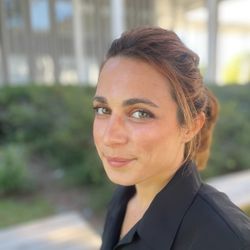Share

Other Voices
Merton Simpson says America must come to grips with the legacy of racism
Merton D. Simpson has always had a sense of his African ancestry and his Blackness.
He was born in Charleston, South Carolina and raised in Brooklyn so he says he’s always known the deep divisions in the United States.
“My mother has just turned 89 years old and she’s a master teacher,” says Simpson in this week’s podcast.
As a first-born son, he has his father’s name. “My father was one of the foremost African art dealers in the world. He also was at the vanguard of the expressionist art movement with Picasso and Romare Bearden,” says Simpson. His father was an artist himself and also a jazz musician.
Simpson is an Albany County legislator, representing Arbor Hill, Sheridan Hollow, Washington Park, and West Hill.
He came to Albany in 1978 “for a job” — as a senior minority group personnel specialist for Civil Service.
“My job was to get employment in New York State government for Blacks and Hispanics who had been traditionally neglected by Civil Service,” said Simpson.
As a lead plaintiff in a federal lawsuit, Simpson v. New York State Department of Civil Service, Simpson won a long legal battle, securing a $45 million settlement for more than 4,000 Black and Hispanic state workers and job applicants who claimed a Civil Service test was biased.
The litigation stretched from 1997 to 2010. “It was a long but historic and necessary fight ….,” said Simpson. “People were promoted on the basis of a test that didn’t legitimately test their knowledge, skills, and abilities and also was tremendously discriminatory.”
He also said, “Had I not stopped that test, it would have been used in every state in the country.”
While a friend continually encourages Simpson to run for Congress, he said, “I can do more in the Albany County Legislature in real terms than I could in Washington because of the tremendous gridlock.”
He recently spoke passionately at a legislative committee meeting on expanding the county’s version of the CROWN Act and elaborated on that with The Enterprise. (See related editorial.) CROWN stands for Creating a Respectful and Open Workplace for Natural hair.
“When it comes to the CROWN Act, what we see is another manifestation of the denial of the legacy of racism in America,” said Simpson. The committee was discussing adding headcoverings to the list of protected hairstyles, which Simpson described as “a longstanding feature of Black people in America and that’s a cultural transition from our history in Africa.”
He went on, “We actually have present situations here in Albany County where people have been denied employment rights or been treated in an inappropriate way because of their hair preferences, which has nothing to do with their ability to do their job.”
He recognized there could be jobs where certain hairstyles would present a hazard but said, “When it comes to a question of: well, you just think it’s nice to have short hair, then that’s a problem.”
Traditional black hairstyles can help some people do their jobs better, says Simpson, stating that the New York City Police Department for many years has not had restrictions on how Black officers wear their hair.
“In many communities, to see people who have sort of indigenous hairstyles endear them to the community,” said Simpson.
He’s an advocate of community policing done by people who are part of the community “because there’s a knowledge, understanding, and a commitment to that community.”
More episodes
View all episodes

Gerard Wallace’s lifetime and work on kinship care
01:22:57|Gerard Wallace, who grew up in Brooklyn, suffered as a child and so devoted his career to ending childhood suffering.Retired now, he lives in the rural Helderbergs and believes some of the worst suffering happens in rural areas.Wallace, a lawyer who advocated for kinship family rights, had a hand in creating a dozen laws in New York state that gives grandmothers and other kin rights in caring for children whose parents are unfit.“Why I got into kinship care and meeting grandparents raising kids is that my home was really a broken home,” Wallace says in this week’s Enterprise podcast. “My father was an alcoholic, worked on the waterfront. He was a good person but, when he drank, it was a nightmare …. We grew up in a state of toxic stress.”
Laure-Jeanne Davignon and John Anderson, Friends of Thacher State Park
25:22|The Emma Treadwell Thacher Nature Center is being reimagined so that kids will be able to crawl into a giant honeycomb or tree to learn about meadows and forests or “dig” for fossils to learn about the Devonian sea. The Friends of Thacher State Park are helping to fund the transformation.
The tale of two generous men and a bygone era
26:48|Bob Flynn has written a book — titled “Tork’s Hill & Mead’s Pond” — about two Voorheesville men who used their private property to create what he terms “winter wonderlands” where he and his friends could gather. Flynn’s book captures an earlier time when kids played outside — even in cold winters — and when there was a sense of community, a sense of place, and a sense of trust. Read more at altamontenterprise.com.
GleeBoxx creator Shreya Sharath wants forgotten people to feel seen
25:36|Each box includes a note she wrote. Sharath read one to The Enterprise: “Even in difficult times, hope can be a light in darkness. Know that you are deserving of support, compassion, and a better tomorrow. Stay safe, take care of yourself, and never forget that you matter.” Read more at altamontenterprise.com.

Kate Cohen says, to save the country, atheists should make themselves known
43:25|altamontenterprise.com
Daughter and mother coach dragon-boat paddlers
31:33|Anna Judge and Louisa Matthew realize they live in an ageist and sexist society — but, with generous spirits, they are paddling against the current. The mother-daughter duo together coach a crew of dragon boat paddlers. Matthew, the mother, is an art professor at Union College. Judge, her daughter, is a certified personal trainer who led her mother into the sport. “A dragon boat is a 40-foot long, very narrow racing boat,” explains Matthew in this week’s Enterprise podcast. “That became standardized in the 20th Century but it’s based on a thousands-year-old Chinese tradition of racing the big rivers in China.” A dragon boat has 20 paddlers, two to a seat, with a person in the stern who steers and a person in the bow signaling directions, traditionally by drumming. “It’s the national sport of China,” said Judge “so it’s quite big in Asia and has subsequently spread to Australia, New Zealand, and Europe.” It came to the United States through Canada, she said, citing the work of a doctor in British Columbia who changed prevailing medical opinion on exercise for breast-cancer survivors.
Lyon Greenberg: A doctor takes a long view of his farm and his life’s journey
27:57|altamontenterprise.com